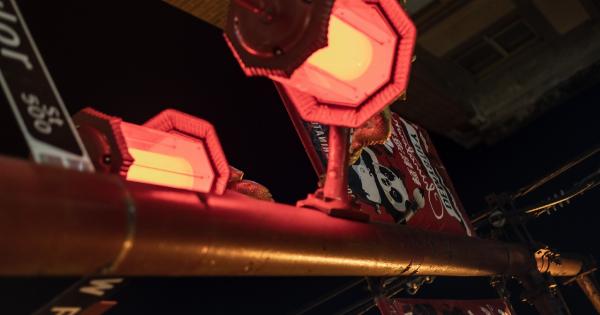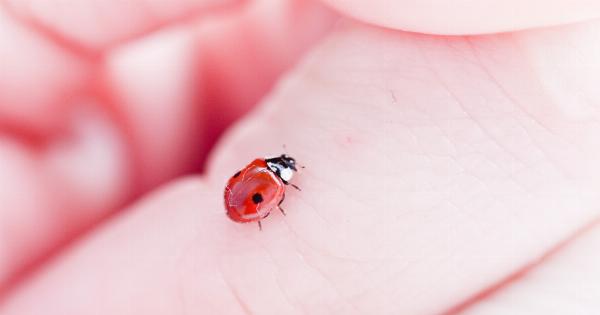Psoriasis and eczema are two common skin conditions that are often confused with each other due to their similar appearance.
However, despite the similarities, psoriasis and eczema have different underlying causes and require different treatment approaches.
Psoriasis
Psoriasis is a chronic autoimmune condition that affects the skin and joints. It is characterized by the rapid growth of skin cells, resulting in raised patches of red, scaly skin.
Psoriasis can occur anywhere on the body, but it is most commonly found on the elbows, knees, scalp, and lower back. The severity of psoriasis can vary from mild to severe, and the condition can be associated with joint pain and inflammation.
Types of Psoriasis
There are several types of psoriasis, including:.
- Plaque psoriasis: This is the most common form of psoriasis, characterized by raised, red patches of skin covered with silver-colored scales.
- Guttate psoriasis: This type of psoriasis is characterized by small, teardrop-shaped bumps on the skin.
- Pustular psoriasis: This is a rare type of psoriasis that causes pus-filled blisters to appear on the skin.
- Inverse psoriasis: This type of psoriasis causes smooth patches of red, inflamed skin, usually in the folds of the skin, such as under the arms or in the groin area.
- Erythrodermic psoriasis: This is a rare, but severe form of psoriasis that can cover the entire body with a red, peeling rash.
Eczema
Eczema, also known as atopic dermatitis, is a chronic skin condition that causes itching, redness, and inflammation. Eczema is caused by a combination of genetic and environmental factors, and it often runs in families.
Eczema can occur anywhere on the body, but it is most commonly found on the hands, feet, face, and neck.
Types of Eczema
There are several types of eczema, including:.
- Atopic dermatitis: This is the most common type of eczema, characterized by dry, itchy skin and a red rash.
- Hand eczema: This type of eczema affects the hands and can be caused by exposure to irritants such as soap or detergent.
- Nummular eczema: This type of eczema causes round, coin-shaped patches of irritated skin.
- Contact dermatitis: This type of eczema is caused by exposure to an irritant or allergen, such as poison ivy or nickel.
How to Tell the Difference Between Psoriasis and Eczema
Although psoriasis and eczema share many symptoms, there are some key differences between the two. Here are some visual cues that can help you differentiate between psoriasis and eczema:.
Appearance
Psoriasis typically appears as raised patches of red, scaly skin that can be silver or white in color. The patches can be itchy or painful and may crack or bleed.
Eczema, on the other hand, appears as a red or brownish rash, sometimes with raised bumps, blisters, or crusting. Eczema patches can also be itchy, and the skin may appear thicker or more leathery over time.
Location
Psoriasis often appears on the elbows, knees, scalp, and lower back, while eczema is most commonly found on the hands, feet, face, and neck. However, both conditions can occur anywhere on the body.
Flare-Ups
Psoriasis tends to come and go in cycles, with periods of remission followed by flare-ups. Eczema can also have flare-ups, but they are often triggered by specific irritants or allergens, such as soap, detergent, or pollen.
Age of Onset
Psoriasis typically develops in adulthood, while eczema often develops in childhood. However, both conditions can occur at any age.
Treatment Options
Both psoriasis and eczema can be treated, although the treatment approach will differ depending on the condition. Here are some treatment options for psoriasis and eczema:.
Psoriasis Treatment
- Topical treatments: Creams, ointments, and shampoos that contain corticosteroids, vitamin D, and other medications can help reduce inflammation and slow the growth of skin cells.
- Light therapy: Exposure to ultraviolet light can help reduce inflammation and slow the growth of skin cells.
- Systemic medications: Drugs that suppress the immune system, such as methotrexate or cyclosporine, may be used in severe cases of psoriasis that do not respond to other treatments.
Eczema Treatment
- Topical treatments: Creams and ointments that contain corticosteroids, tacrolimus, or pimecrolimus can help reduce inflammation and relieve itching.
- Oral medications: Antihistamines can help relieve itching, while antibiotics may be prescribed if an infection develops in the affected skin.
- Lifestyle changes: Avoiding irritants, such as soap or detergent, can help prevent flare-ups of eczema.
Conclusion
If you suspect that you have psoriasis or eczema, it is important to consult a dermatologist for an accurate diagnosis and treatment plan.
Although psoriasis and eczema can be similar in appearance, they have different underlying causes and require different treatment approaches.





























